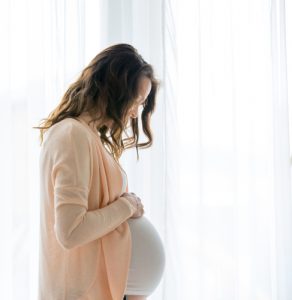 Expectant mothers and fathers head to the hospital to have their baby, dreaming of the joyful moments to come but also worrying about the health and well-being of their baby. The focus is on the infant, so they are unlikely to spend much time considering threats to the mother herself. But every year, in the United States, thousands of women die during childbirth or suffer life-altering injuries. A recent investigation by USA Today deemed that the U.S. is the “most dangerous place in the developed world to give birth.” And that leads to cases of medical malpractice and medical negligence.
Expectant mothers and fathers head to the hospital to have their baby, dreaming of the joyful moments to come but also worrying about the health and well-being of their baby. The focus is on the infant, so they are unlikely to spend much time considering threats to the mother herself. But every year, in the United States, thousands of women die during childbirth or suffer life-altering injuries. A recent investigation by USA Today deemed that the U.S. is the “most dangerous place in the developed world to give birth.” And that leads to cases of medical malpractice and medical negligence.
Keeping Mothers Safe
How can maternal mortality rates be so high? The United States is a country of sophisticated equipment, innovative technology, and experienced specialists. The high death rates are largely attributed to hospital negligence, and negligence by doctors and nurses who do not conduct basic safety checks, such as monitoring levels of blood loss after delivery and blood pressure.
Over 50,000 women are severely injured in childbirth every year, and 700 women die, according to a long-term study. Women have been dying at a staggering rate before, during, or after childbirth, regardless of medical advances in healthcare.
Medical Negligence Can Happen to Anyone
Sometimes it takes the experience of a high-profile person to draw attention to a problem. Tennis star Serena Williams had an emergency C-section to deliver her daughter but, after the birth, coughing led to the reopening of her wounds. It was only then that doctors discovered life-threating blood clots.
“In 21st century America, in the most powerful nation on Earth, no woman should ever die from pregnancy and childbirth,” says Michael Lu, senior associate dean at George Washington University School of Public Health and former director of the federal Maternal and Child Health Bureau.
Some women are not as fortunate as Williams who, though she has fame and riches, could have succumbed to her injuries just like people who do not have her advantages. Women of color and those of low socioeconomic backgrounds have the greatest risks of complications during childbirth. Lu cites a NYC study that estimated the rate of life-threatening complications would fall by half if African American women gave birth at the same hospitals as white women.
You Shouldn’t Be Scared to Have Your Baby
In California, the one place in the U.S. where there has not been a rise in maternal mortality rates, hospitals use “safety bundles” – toolkits, protocols, and best practices – to improve readiness, recognition, response, and reporting in maternal care. The maternal mortality rate decreased by more than half.
It’s baffling to think that American hospitals, which have access to the best tools and medical staff, could possibly have such a high rate of maternal threats and death. The procedures that could save lives are not complicated, nor do they require major equipment. Awareness, diligence, monitoring vitals – these tasks are basic, but they don’t always happen. With better care, injuries and deaths could be reduced and prevented.
Medical negligence is a reality that mothers are facing, some of them bleeding until they have organ failure, suffering a stroke from unmonitored high blood pressure, dying from untreated infections and blood clots. If women who have complications do survive, they may be unable to have more children or left paralyzed.
If your life has been altered because of poor handling of maternal care, contact an experienced Michigan medical malpractice lawyer at Thurswell Law. You deserve compensation if your children are left motherless, if you’re a parent who is left behind to care for children without a partner, if your family has been prevented from growing larger. Maternal deaths are preventable, and your experience can very well be considered medical negligence. Get support today. Your consultation is free and we do not charge any fees unless you collect. Call (248) 354-2222.







